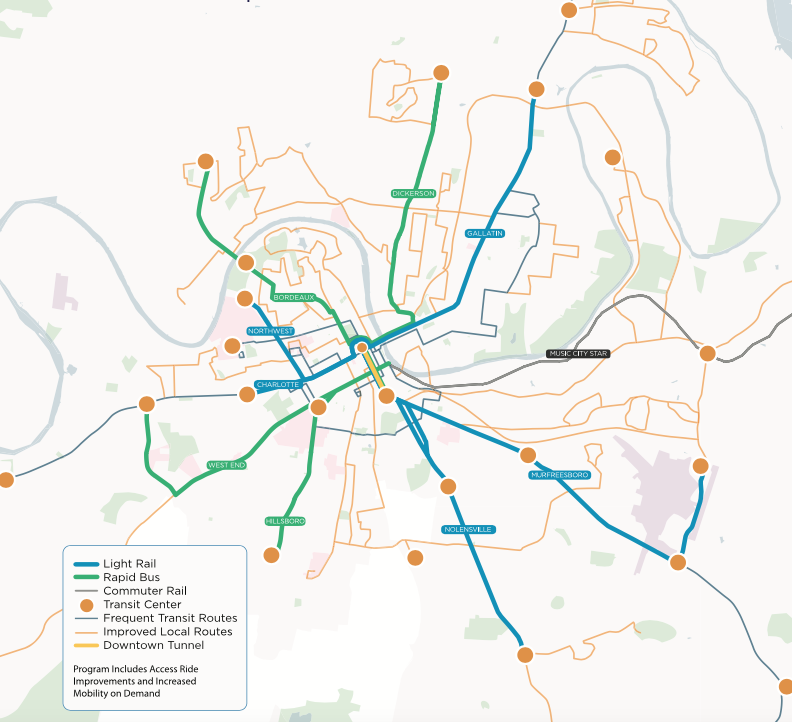Growing, congested Nashville is charting a different course for its transportation system.
Last week, Mayor Megan Barry unveiled a $5.2 billion transit plan [PDF], dubbed "Let's Move Nashville," to improve access to reliable transit and reduce car-dependence.
The plan calls for 26 miles of rapid transit -- including a network of five light rail corridors and four rapid bus routes. To allow transit riders to bypass car traffic where it's most intense, the plan envisions a 1.8-mile, three-stop downtown tunnel for buses and trains, at a cost of $1 billion.
The full buildout would take 14 years, but Nashville residents won't have to wait that long for better transit service. In the short run, the city wants to increase the frequency and availability of bus service. By 2019, buses on the 10 busiest routes will run at least every 15 minutes during peak hours, and service will be available 20 hours a day, except on Sundays. Some transit trips will be as much as 80 percent faster, according to the city.
Barry is proposing a suite of revenue sources to pay for the transit package, the largest being a sales tax increase. The sales tax hike will be graduated, beginning at one-half cent in 2018 and rising to a full cent by 2023.
To offset the regressive nature of the sales tax and ensure that benefits accrue to low-income residents, people living at or below poverty level will not have to pay fares, according to the Tennessean. In addition, Nashville-Davidson County promises to use value capture techniques to tap into the land price appreciation by light rail stops and funnel the revenue into subsidized housing.
Voters will have a chance to make it official on the May 1 ballot in Nashville-Davidson County. Surrounding counties in the region also have transit plans in the pipeline, but they will only proceed if Nashville does too, the Tennessean reports.
The unveiling of "Let's Move Nashville" comes after a multi-year local planning process and negotiations at the state level to allow counties like Nashville-Davidson to levy a tax for transit.
Sunbelt cities like Nashville are some of the most car-dependent places in the nation. If they can shift to a different paradigm where transit and walking become safe and convenient ways to get around, anywhere can.






